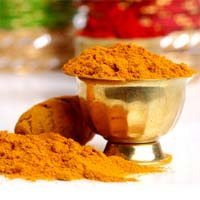Spice May Trigger Mesothelioma Cell Breakdown

There’s more evidence that cancer researchers might do well to spice up their mesothelioma clinical trials.
A team of researchers at Keio University in Tokyo report that curcumin, the primary component in the spice turmeric, can effectively reduce the viability of human mesothelioma cells in the laboratory. This, despite the fact that mesothelioma is notoriously resistant to many types of conventional cancer therapies.
“Curcumin, which has a long history as a dietary spice, is known to suppress the growth of multiple cancer lines, but the effects on mesothelioma cells are not well-defined,” observed principal investigator Y. Yamauchi in Phytotherapy Research. Mesothelioma is an aggressive cancer of internal membranes, triggered by asbestos exposure. Citing mesothelioma’s well-known treatment resistance, Yamauchi says alternative agents like curcumin are important to help formulate new treatment strategies.
To test the role of curcumin in fighting mesothelioma, the Japanese team exposed ACC-MESO-1 cells, a human mesothelioma cell line, to the compound in their laboratory. The curcumin increased the cancer cells’ expression of the proteins LC3B-II/LC3B-I and triggered an increase in autophagy, the process by which cells naturally break down and recycle their own components. “From these findings it was speculated that induction of autophagy was at least in part involved in the reduction of cell viability by curcumin,” says the report.
The new research appears to at least partially confirm the findings of a 2011 study that demonstrated that curcumin has a damaging effect on human mesothelioma cells in the lab, as well as on live mesothelioma cells in mice. In that study, conducted at the John D. Dingell VA Medical Center in Detroit, curcumin was found to disrupt the cell cycle and promote apoptosis (cell death) whether added to cells in a dish or fed to mice that had mesothelioma.
While the new study stopped short of saying that curcumin could trigger apoptosis in mesothelioma cells, it did find that autophagy in treated cells increased with an increased curcumin dose. Curcumin has been shown to have an impact on a variety of cancers and has many advocates in cancer centers around the country.
If you are interested in using curcumin to help manage mesothelioma or any other cancer, disease or illness be sure to speak with your licensed healthcare provider.
Sources:
Yamauchi, Y et al, “Curcumin Induces Autophagy in ACC-MESO-1 Cells”, March 3, 2012, Phytotherapy Research, Epub ahead of print.
Wang, Y et al, “Curcumin suppresses growth of mesothelioma cells in vitro and in vivo, in part, by stimulating apoptosis”, November 2011, Molecular and Cellular Biochemistry, pp. 83-94.





